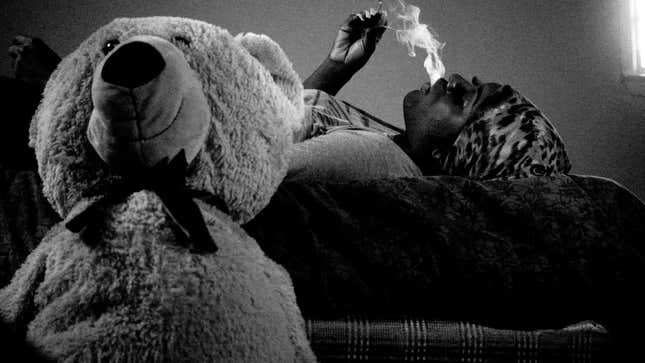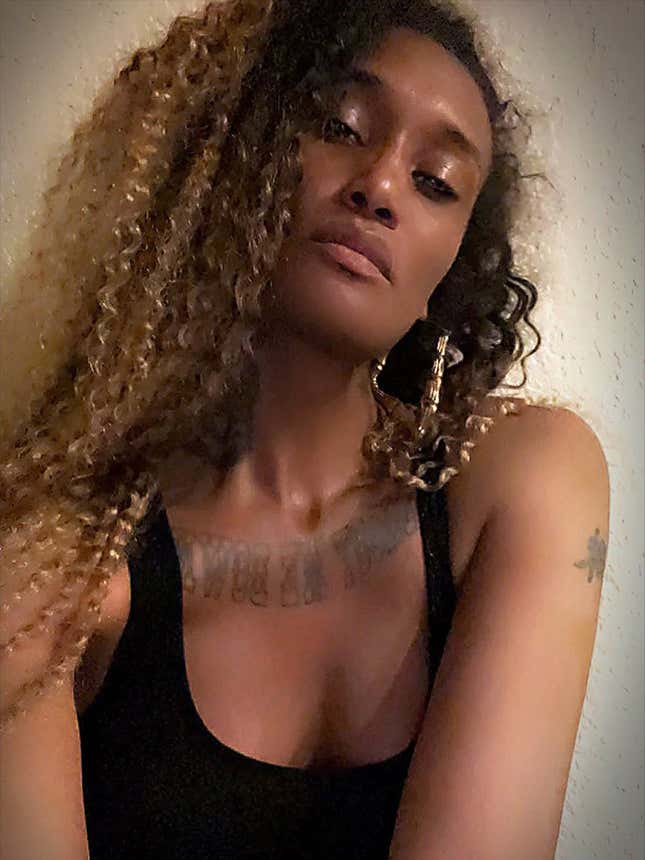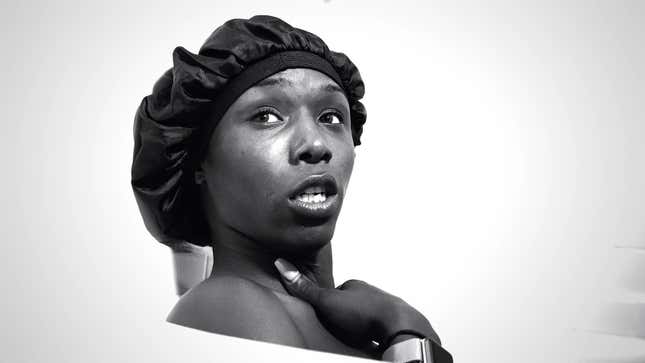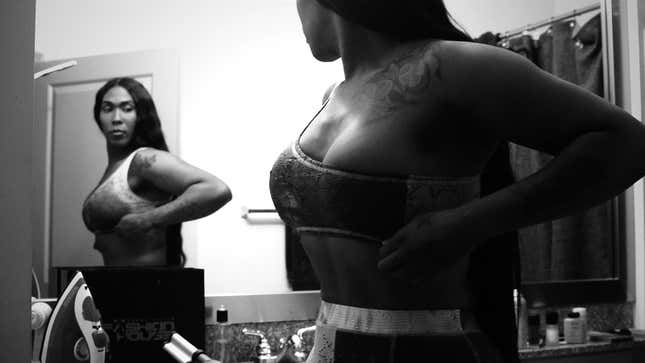The Black Trans Stars of ‘Kokomo City’ on the Tragedy and Hilarity of Sex Work
D. Smith's documentary radically disavows respectability politics as it bares the naked truth.
EntertainmentMovies

When casting Kokomo City, her hilarious and sometimes harrowing documentary about Black trans sex workers, first-time feature director D. Smith had a straightforward criterion. “One of the main reasons why I chose these girls is I told them I don’t want anyone that will get offended quickly in this film,” Smith told Jezebel in a recent Zoom. “I can’t. I can’t. I don’t have patience for that.”
She also wanted subjects who matched her sensibility. With the doc (in theaters Friday), Smith set out to “un-correct,” as she put it, tendencies that may be well-intentioned but are nonetheless othering. “We are so put into this fortress that no one can talk to us,” said Smith, referring to Black trans women. “No one can touch us. No one can ask us anything. No one knows how to approach us. No one knows how to identify. It’s a lot to put on people when they’re just literally trying to process the fact that there are different people in the world.” Kokomo City, then, is a radical disavowal of respectability politics. Largely shot in its subjects’ homes, often with them discussing their lives from their beds, the black-and-white film’s intimacy is fortified by the real-talk of its four primary subjects. (Alongside them, Smith interviewed a host of others, including some trans-attracted cis men.)
In a Zoom together, Mitchell and Silver both said they “loved” the movie, which does not shy away from the harsh realities of their former jobs (both said they’ve moved on from sex work), but also isn’t afraid to examine the hilarity and absurdities of situations they find themselves in. The movie opens with Mitchell, in bed, recounting a trick whom she realized was carrying a gun, which led to a tussle over the gun, the trick speeding off, and then her inviting him back over having liked what she saw. As the tone of Mitchell’s story shifts from horny to ominious to exciting, the music changes from whimsical to dissonant, bassy ambiance to a pumped-up, horn-laden theme that would not have sounded out of place in a Blaxploitation movie. Clearly, Smith is here to have fun while also advocating for her subjects’ humanity. In fact, the fun is part of her advocacy strategy. Both Mitchell and Silver agreed that the movie is inherently political. Silver described it as a way of pushing back against the various draconian state laws that are complicating transitioning, if not rendering it impossible.

“I’m happy that this can start conversations, that this can encourage other trans girls to strive for more because they’re like, ‘OK, well, these transgender women are in movies. What can I do with my life?’” said Mitchell. “People are going to talk about transgender people anyway, so as a transgender person, it would be the smartest thing to build yourself and become self-sufficient. So you give people something to talk about.”
“I love that we are portrayed in a positive light, and it gave us an opportunity to be ourselves and be vulnerable,” said Silver.
-

-

-

-

-

-

-

-

-

-

-

-

-

-

-

-

-

-

-

-

-

-

-

-

-

-

-

-

-

-

-

-

-

-

-

-

-

-

-

-











































